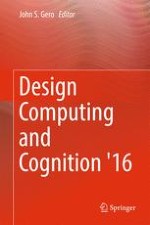2017 | OriginalPaper | Buchkapitel
Personalised Specific Curiosity for Computational Design Systems
verfasst von : Kazjon Grace, Mary Lou Maher, David Wilson, Nadia Najjar
Erschienen in: Design Computing and Cognition '16
Aktivieren Sie unsere intelligente Suche, um passende Fachinhalte oder Patente zu finden.
Wählen Sie Textabschnitte aus um mit Künstlicher Intelligenz passenden Patente zu finden. powered by
Markieren Sie Textabschnitte, um KI-gestützt weitere passende Inhalte zu finden. powered by
